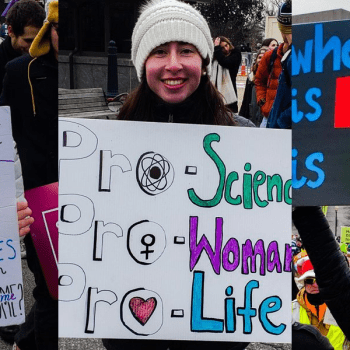
The Netherlands was one of the first countries to legalize euthanasia and doctor-assisted suicide. It has been legal there since 2002 so now we can see the effect it has had on Dutch culture. The Guardian did an excellent long-form piece on it called “Death on demand: has euthanasia gone too far?” I want to quote a few of the more poignant points in this 5,200-word article so you can grasp why we in other countries shouldn’t go down this path.
In the Netherlands in 2017, over 1 in 4 deaths was induced by a human hand in some form. Numbers have shot up form when first passed in 2002 because the conditions eligible have expanded to almost anything. This is radically taking God out of the picture.
Slippery Slope
The article notes that Euthanasia has lead to a slippery slope.
The Netherlands has also discovered that although legalising euthanasia might resolve one ethical conundrum, it opens a can of others – most importantly, where the limits of the practice should be drawn. In the past few years a small but influential group of academics and jurists have raised the alarm over what is generally referred to, a little archly, as the “slippery slope” – the idea that a measure introduced to provide relief to late-stage cancer patients has expanded to include people who might otherwise live for many years, from sufferers of diseases such as muscular dystrophy to sexagenarians with dementia and even mentally ill young people. […]
“The process of bringing in euthanasia legislation began with a desire to deal with the most heartbreaking cases – really terrible forms of death,” [Theo] Boer said. “But there have been important changes in the way the law is applied. We have put in motion something that we have now discovered has more consequences than we ever imagined.”
I have written two articles with concrete cases in this regard form different countries. The problem is that when the life of the elderly is cheapened, other life – such as the disabled or mentally ill – can easily be cheapened too.
Prewritten Records Lead to Horrendous Acts
We humans often think of future suffering will be much worse than we really experience later. We can often undergo things we thought impossible earlier in life. However, doctors are taking prior written requests above the current desires of the patient.
Last January a medical ethicist called Berna Van Baarsen caused a stir when she resigned from one of the review boards in protest at the growing frequency with which dementia sufferers are being euthanised on the basis of a written directive that they are unable to confirm after losing their faculties. “It is fundamentally impossible,” she told the newspaper Trouw, “to establish that the patient is suffering unbearably, because he can no longer explain it.”
Van Baarsen’s scruples have crystallised in the country’s first euthanasia malpractice case, which prosecutors are now preparing. (Three further cases are currently under investigation.) It involves a dementia sufferer who had asked to be killed when the “time” was “right”, but when her doctor judged this to be the case, she resisted. The patient had to be drugged and restrained by her family before she finally submitted to the doctor’s fatal injection. The doctor who administered the dose – who has not been identified – has defended her actions by saying that she was fulfilling her patient’s request and that, since the patient was incompetent, her protests before her death were irrelevant. Whatever the legal merits of her argument, it hardly changes what must have been a scene of unutterable grimness.
Drugging and restraining a patient sounds far more like capital punishment than promoting personal choice.
Doctors Say “No”
Some doctors, although a minority decide against participating in this practice.
Those who demur on principle are a small proportion of the profession, perhaps less than 8%, according to the end-of-life specialist Agnes van der Heide.
People Demanding Euthanasia
A problem has arisen with people demanding Euthanasia from doctors. This puts the doctors in a tough spot. On the other hand, once the patient is no longer competent, doctors can basically use it at will.
For Dutch GPs, fielding demands for euthanasia from assertive patients who resent the slightest reluctance on the part of their physician has become one of the more disagreeable aspects of their job.
“In the coldest weeks of last winter,” Theo Boer told me, “a doctor friend of mine was told by an elderly patient: ‘I demand to have euthanasia this week – you promised.’ The doctor replied: ‘It’s -15C outside. Take a bottle of whisky and sit in your garden and we will find you tomorrow, because I cannot accept that you make me responsible for your own suicide.’ The doctor in question, Boer said, used to perform euthanasia on around three people a year. He has now stopped altogether.
Although he supported the 2002 euthanasia law at the time, Boer now regrets that it didn’t stipulate that the patient must be competent at the time of termination, and that if possible the patient should administer the fatal dose themselves.
More say no to certain types of euthanasia requests
A category of euthanasia request that Dutch doctors commonly reject is that of a mentally ill person whose desire to die could be interpreted as a symptom of a treatable psychiatric disease.
However, proponents of this “culture of death” have created a way to link people up with doctors who will give them the drugs. A recent national case had been rejected by two doctors before using this “service.”
Family Member’s Regrets
Before the 2002 law, euthanasia was illegal but not prosecuted if a doctor consulted the family and made proper precautions. This family consultation was thrown out in the new law.
This legal nicety would become painfully significant to a middle-aged motorcycle salesman from Zwolle called Marc Veld. In the spring of last year, he began to suspect that his mother, Marijke, was planning to be euthanised, but he never got the opportunity to explain to her doctor why, in his view, her suffering was neither unbearable nor impossible to alleviate. On 9 June, the doctor phoned him and said: “I’m sorry, your mother passed away half an hour ago.”
Marc showed me a picture he had taken of Marijke in her coffin, her white hair carefully brushed and her skin glowing with the smooth, even foundation of the mortuary beautician. Between her hands was a letter Marc had put there and would be buried with her – a letter detailing his unhappiness, resentment and guilt. […]
Dutch doctors don’t euthanise people because of depression – even if the more extreme advocates of the right to die think they should. As a result, it isn’t uncommon for depressives or lonely people to emphasise a physical ailment in order to get their euthanasia request approved. […]
In Marijke’s case, the physical reason was a terminal lung disease, which, Marc told me, she both exacerbated and exaggerated. She did this by cancelling physiotherapy sessions that might have slowed its progress, bombarding her GP with complaints about shortness of breath and slumping “like a sack of potatoes” whenever he visited. “To be sure of being euthanised,” Marc said drily, “you need above all to take acting lessons.”
I can only image how gut-wretching that experience must have been.
Classism and Discrimination
Finally, I want to bring out a point that this article nails but most forget on this. Euthanasia comes from a certain class and a discriminatory view of the world.
Borne along by the ultra-rational spirit of Dutch libertarianism (the spirit that made the Netherlands a pioneer in reforming laws on drugs, sex and pornography), the Dutch euthanasia scene also exudes a strong whiff of upper-middle class entitlement.
Conclusion
Even though euthanasia is promoted based on autonomy, it really devalues the person for their innate nature. When we deny innate human dignity, slowly it erodes in other ways. The Dutch culture now regarding death shows us some of the bad consequences of this practice. Even the euthanasia stories where people appear happy, I can only imagine their conscience eating away from inside. The full article has even more details if you want to see them. We need to stand up to this new afront to human dignity.
UPDATE: The day I posted this, the coalition against euthanasia in Maryland (where I live) posted that a pro-euthanasia bill was about to be presented in our statehouse. This is a tragedy.
Note: If you want more like this and want my weekly Catholic news please,












